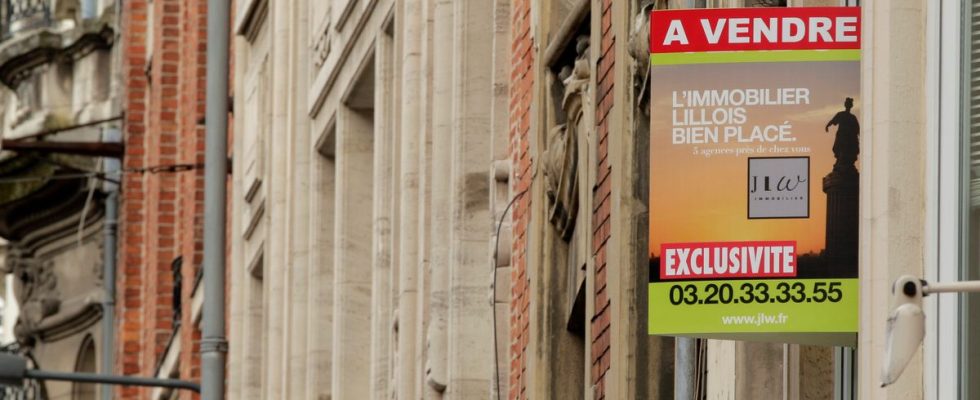Interest rates are rising, sellers are struggling to sell their goods and industry players are worried. The real estate sector is not doing well. When this part of the economy falters, is the entire economy in danger? Lighting with Stephanie Villerseconomist at PwC France.
How is real estate a key economic sector in our country?
The real estate purchase project is a real aspiration of the French. Around 50% of households are owners (Editor’s note 55.7% of households in 2021 according to the Ministry of Ecological Transition). In Germany for example, this is less the case and the impact is less here, in this sector. Forecasts predict around 900,000 sales in 2023 compared to 1.2 million the previous year. The volume of credits granted fell by 40% in one year, borrowing capacity was limited by the rise in rates. Real estate is the first sector affected since this rate increase in July 2022.
Could the poor shape of the real estate market lead to a crisis?
The European Central Bank (ECB) increased rates in July 2022 to respond to inflation. The increase in its rates spread across all interest rates (consumption, real estate, investment for businesses, state debt). When we raise rates, money becomes more expensive so we are less likely to boost economic activity. We are in a pivotal situation where rates are at very high levels, caused by a sudden increase.
The real estate market needs to adjust. With a higher cost of borrowing, prices must fall. Today, sellers maintain past benchmarks, so they do not lower their prices, business does not happen. In one year, on the same amount invested, buyers lost 18 square meters. We can understand a certain form of depression. To gain new momentum, property prices would need to fall by 15%.
Can real estate difficulties spill over into other sectors?
It seems difficult to generalize. Obviously, construction, the first sector concerned, sees that demand in the real estate sector is compressed. This sector must also face the increase in raw materials for their constructions. For them, it’s a double punishment. If this sector is in a recessionary situation, it is not good news, of course, it is a phase of transition. But there are other, more urgent issues, such as purchasing power linked to current household spending.
If this transition phase continues, should we be concerned?
If it lasts too long, it will become worrying. But it should also be noted that some households have been able to build up savings, which will either be consumed or invested. When it is invested, in general, the French turn to real estate. There is this mattress which allows us to envisage a rebound in this sector when there has been an adjustment.
In economics, everything is a question of trust. So the project of access to property, which is an aspiration in France, must not be made impossible indefinitely by market conditions. If it is, then there would be a loss of confidence which could spread across all household consumption behaviors. If we remove the French people’s ability to access property, that could have a worrying impact in the long term.

